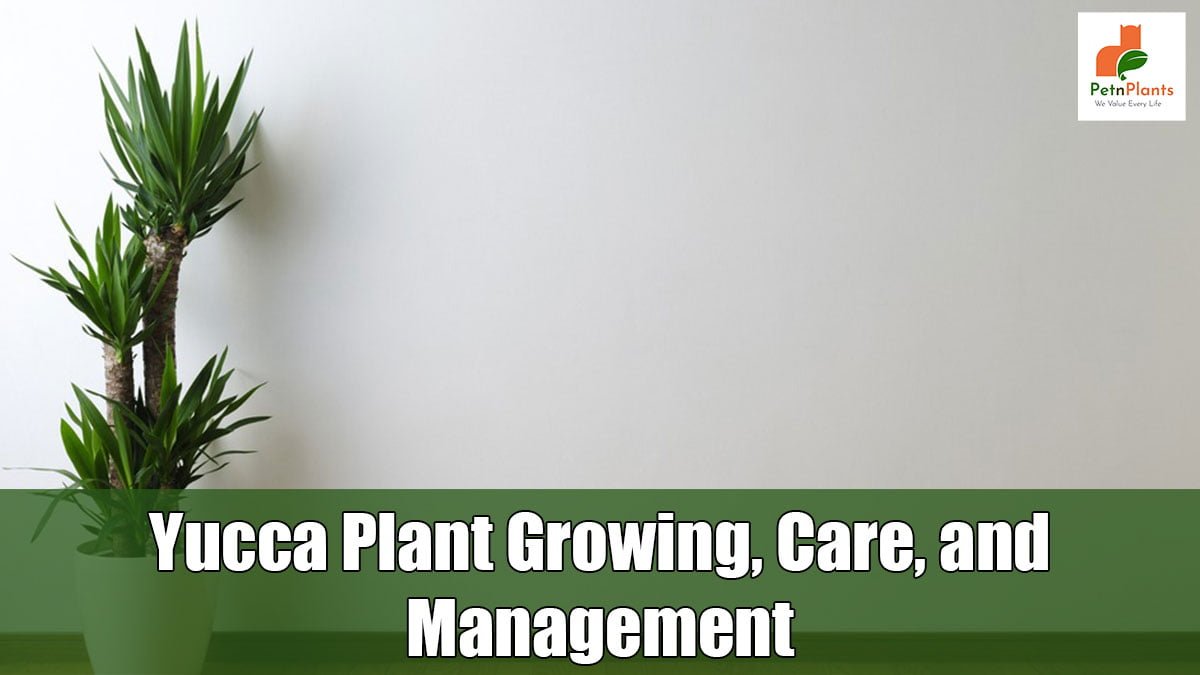How To
Latest
Pet Care
How to Groom Your Dog at Home with the Right Dog Grooming KitMarch 19, 2025
We Value Every Life

The yucca plant is an evergreen perennial native to the hot, dry regions of the south-western United States and Mexico. It is a member of the agave family, and its stiff, sword-like leaves can grow up to 3 feet long. The yucca plant produces clusters of white or cream-colored flowers that bloom in the spring or summer.
The yucca plant is a hardy, drought-tolerant species that can be grown in various soil types. It prefers full sun but will tolerate partial shade. Yuccas are relatively low-maintenance plants and are not susceptible to many pests or diseases. However, they can be damaged by excessive moisture, so it is important to provide well-drained soil when growing them.
Yucca plants are often used as ornamental features in landscape design. They can be planted alone or in groups, and their striking foliage makes them ideal accent plants. Yuccas can also be grown in containers and make good houseplants.
There are many different types of Yucca plants, and they can be categorized in several ways. One way to categorize them is by their height, with some being very tall (over 6 feet) and others only a few inches tall. Another way to categorize Yucca plants is by the color of their leaves, with some having green leaves and others having blue-green or even purple leaves.
Some Yucca plants are also categorized by the shape of their leaves, with some having long, thin leaves and others having shorter, broader leaves. And finally, some Yucca plants are categorized by the type of flowers they produce, with some producing white flowers and others producing yellow or pink flowers.
Which type of Yucca plant you choose will ultimately depend on your preferences and what will work best in your particular garden or landscape. But no matter which type you choose, you can be sure that you’ll have a beautiful and unique plant that will add interest and special appeal to your home.
Planting yucca seeds is a simple process that can be done indoors or outdoors. If you are planting them indoors, start by filling some small pots with seed-starting mix. Once the mix is dampened, sow the seeds on the surface and gently press them in. Place the pots in a sunny location and keep the soil moist but not wet. The seeds should germinate within two to four weeks.
If you are planting yucca seeds outdoors, wait until after the last frost has passed. Choose a location that receives full sun and has well-drained soil. Sow the seeds on the soil’s surface and gently press them in. Water them well and keep the soil moist but not wet until they have germinated once they have sprouted; thin them out, so they are spaced about 12 inches apart.
Proper yucca plant care is essential to keeping your plant healthy and looking its best. Here are a few tips on how to care for a yucca plant:
Following these simple tips, you can keep your yucca plant healthy and looking great!
Assuming you would like tips for managing a yucca plant:
Water your yucca plant when the soil is dry to the touch. These plants are drought-tolerant and don’t need to be watered often. When you do water, give them a good soaking so that the water reaches the roots.
Fertilize your yucca plant once a year in the spring with a balanced fertilizer. Avoid getting fertilizer on the leaves, as this can burn them.
If your yucca plant looks yellow or brown, it may get too much sun. Move it to a spot with indirect sunlight.
Yuccas are generally low-maintenance plants but can get infested with mealybugs and scale insects. If you see any of these pests on your plant, use an insecticide to get rid of them.
Growing and caring for a yucca plant can be a rewarding experience. With the right amount of sunlight, water, fertilizer, and pruning, you can create an attractive landscape with these versatile plants. They are also very low maintenance, so you won’t have to worry about them too much once they’re in place. If you’re thinking about growing yucca plants in your garden or yard, remember to be patient and don’t expect results overnight. But with proper care and management of your yucca plant, it should thrive for years to come!
0